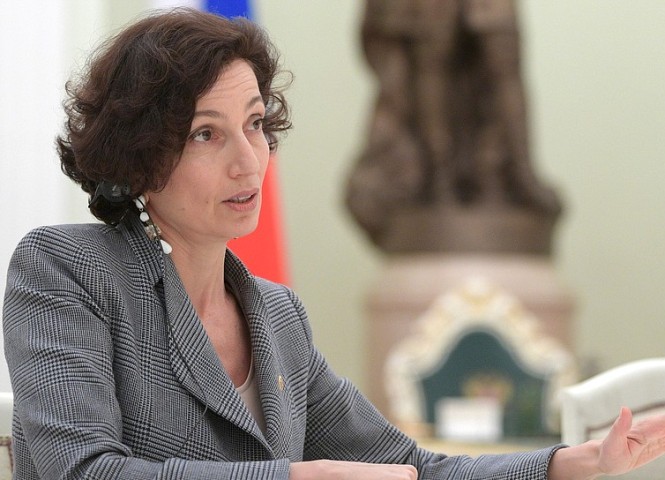UNESCO Regrets U.S. Exit Decision with Resolve and Continued Commitment
The justifications cited by the U.S. government for this new withdrawal mirror those used in 2017, focusing on political disputes and perceived biases.

In a statement marked by both regret and resilience, the United Nations Educational, Scientific and Cultural Organization (UNESCO) has formally acknowledged the decision by President Donald Trump to once again withdraw the United States of America from the organization. The withdrawal, set to take effect at the end of December 2026, marks the second such departure under President Trump, the first having occurred in 2017.
UNESCO Director-General expressed deep disappointment, citing that the move contradicts the very foundations of multilateralism and could hinder collaborative initiatives currently underway with numerous American institutions and communities.
“This decision contradicts the fundamental principles of multilateralism, and may affect first and foremost our many partners in the United States of America—communities seeking site inscription on the World Heritage List, Creative City status, and University Chairs,” the Director-General stated.
A Decision Anticipated — and Strategically Prepared For
While disappointing, the Organization was not caught unprepared. Since the 2017 withdrawal, UNESCO has implemented structural reforms and diversified its financial portfolio, reducing its reliance on any single member state.
-
In 2018, the U.S. contribution represented a considerable gap in the Organization’s revenue.
-
Today, UNESCO's budget is more resilient, with the U.S. contribution comprising only 8% of its total budget, compared to over 40% for some other UN bodies.
-
Voluntary contributions from other member states and private entities have doubled since 2018, strengthening financial independence.
As a result, no layoffs are currently anticipated, and the Organization is confident in its ability to maintain its global programs despite the expected resource shortfall.
UNESCO’s Global Achievements Despite U.S. Absence
Since the 2017 U.S. withdrawal, UNESCO has accelerated its global operations and reaffirmed its core mandate—to build peace through international cooperation in education, the sciences, and culture. Highlights of this effort include:
-
Rebuilding Mosul: The largest operation in UNESCO’s history, launched in 2018, focused on reconstructing the war-torn historic heart of Mosul, Iraq.
-
AI Ethics Framework: UNESCO became the first global body to adopt a standard-setting instrument on the ethics of artificial intelligence, positioning itself as a leader in tech governance.
-
Conflict Education Initiatives: Programs supporting culture and education in conflict-affected countries like Ukraine, Lebanon, and Yemen have expanded significantly.
-
Girls’ Education and Biodiversity: New initiatives promoting gender equity in education and biodiversity protection have been intensified globally.
A Misalignment of Justifications and Current Realities
The justifications cited by the U.S. government for this new withdrawal mirror those used in 2017, focusing on political disputes and perceived biases. However, UNESCO notes that the global context and institutional framework have since evolved significantly:
-
Political tensions that previously strained U.S. participation have eased.
-
UNESCO now serves as a rare forum for consensus-building on global challenges, offering concrete, action-oriented multilateralism.
-
Claims of institutional bias overlook UNESCO's evidence-based reforms and outreach.
UNESCO’s Leadership in Holocaust Education and Anti-Antisemitism Work
UNESCO underscored its role as the sole UN agency mandated to tackle Holocaust education and the fight against antisemitism—areas where it has made significant and internationally acclaimed progress:
-
85 countries have received support in implementing curricula, training educators, and combating Holocaust denial and hate speech.
-
Respected organizations such as the United States Holocaust Memorial Museum, World Jewish Congress, and the American Jewish Committee (AJC) have praised UNESCO’s work in this field.
-
These accomplishments contradict assertions that the Organization has failed in its responsibility to counter antisemitism or acknowledge historical atrocities.
Continued Engagement With American Partners
Despite the U.S. federal government’s decision, UNESCO reaffirms its commitment to working closely with a broad range of American partners, including:
-
Academic institutions
-
Private sector firms
-
Non-profit and civil society organizations
The Director-General emphasized that the doors of UNESCO remain open to the United States, expressing hope that dialogue with both the U.S. administration and Congress will continue, possibly paving the way for a renewed partnership in the future.
“UNESCO’s purpose is to welcome all the nations of the world, and the United States of America is and will always be welcome.”
A Vision Beyond Membership: UNESCO’s Forward-Looking Mandate
While the imminent departure of a major member state is a blow to multilateral diplomacy, UNESCO is leveraging this moment to underline its institutional durability, strategic adaptability, and unwavering mission.
As the world contends with rising misinformation, threats to cultural heritage, climate change, and educational disparities, UNESCO’s role remains more crucial than ever. The Organization has vowed to continue its work with the same rigor and resolve, expanding its footprint even in the absence of full U.S. engagement.








